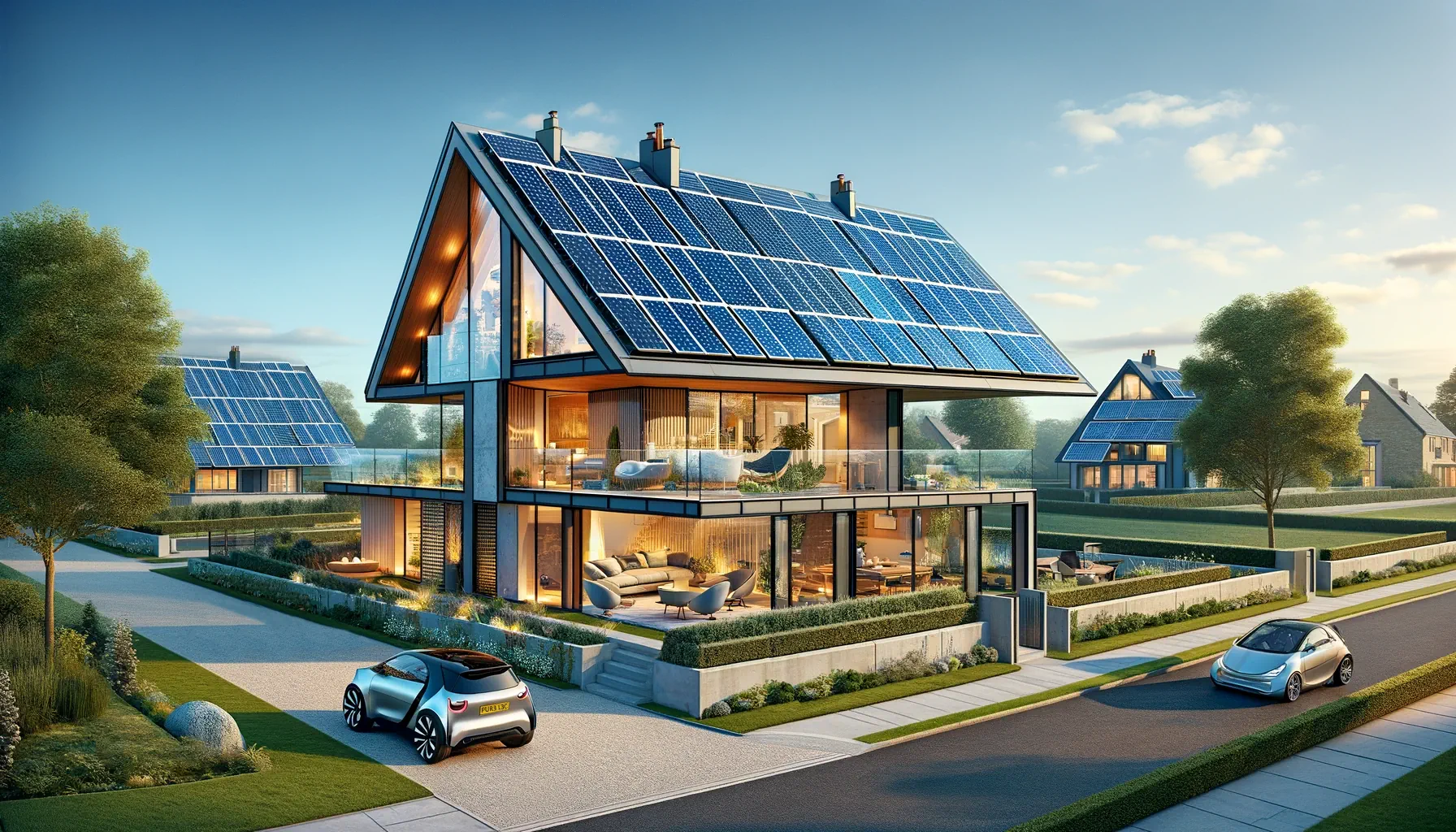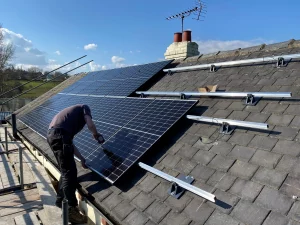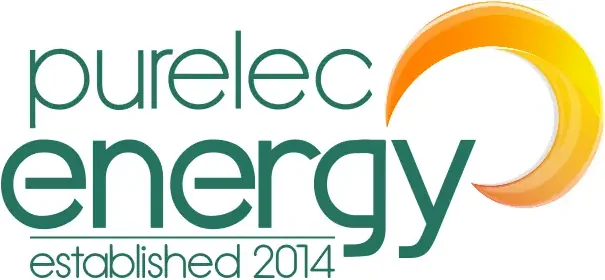
The UK’s Future Homes Standard (FHS) is a pivotal part of the country’s strategy to reduce carbon emissions from new homes.
The Future Homes Standard, set to be implemented in 2025, is designed to ensure that all new homes will emit 75-80% less carbon than those constructed under previous regulations. This initiative is critical as the residential sector plays a significant role in the UK’s goal to achieve net zero carbon emissions by 2050.
The Future Homes Standard focuses on several key areas:
Energy Efficiency
One of the main objectives of the FHS is to improve the energy efficiency of homes. This includes enhancing the building fabric (structural materials and insulation), incorporating triple-glazing standards, and prioritising low-carbon heating systems, such as heat pumps, over older, less efficient technologies.
Building Regulations Updates
To pave the way for the FHS, the UK government updated Parts F and L of the Building Regulations at the end of 2021. These updates, effective from June 2022 in England, set higher standards for ventilation (Part F), energy, and carbon emissions (Part L), along with requirements for preventing overheating (Part O) and electric vehicle charging points (Part S). These changes are seen as a first step towards the Future Homes Standard, aiming for a 31% reduction in carbon emissions compared to previous standards.
Implementation and Impact
The FHS is set to impact architects, builders, and developers by setting new benchmarks in construction practices and energy efficiency. It encourages the adoption of “fabric first” approaches, emphasising the importance of building materials and construction techniques in achieving energy efficiency. The Standard also allows local authorities to set higher energy efficiency standards for new homes in their local areas.
The regulations will also have a positive effect on homeowners, who will benefit from long term cost savings brought about by more efficient energy usage.
Solar Energy’s Role

On the 13th of December 2023, the UK Government published The Future Homes and Buildings Standards: 2023 consultation, discussing a potential mandate for new homes to include solar panels as part of the Future Homes Standard. The consultation explores the advantages of incorporating solar panels into new builds.
Although a final decision on this requirement is still pending, solar roofing systems align with the FHS’s goals of enhancing energy efficiency and reducing reliance on fossil fuels. As a result, solar energy is expected to play a crucial part in fulfilling the objectives of the FHS. With the emphasis on low-carbon and renewable energy sources, solar power provides an effective solution for reducing emissions in new homes.
The Financial Impact
While the FHS represents a significant advancement in reducing carbon emissions from residential buildings, it has also raised concerns about its potential impact on housing prices. The use of higher standard building materials might increase construction costs, which could, in turn, affect home prices. However, the long-term benefits, such as lower energy bills for homeowners and a cleaner environment, are expected to outweigh these initial costs.
Find Out More About Going Solar
Whether you’re a developer looking to incorporate solar into a new build, or a homeowner who wants to save on energy bills, Purelec Energy has a solution to suit you.
Get in touch with our Yorkshire based Solar experts by filling in the form or calling 01924 840 198
